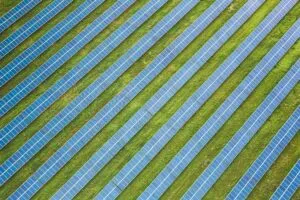The definition of impact investing
Investing is really about putting money to work with the expectation of material results. Impact investing aims to go further: making profits while generating social or environmental positive impact. In other words, impact investments have a dual purpose of offering financial return and are in line with the investor’s conscience.
According to the Global Impact Investing Network, the term was coined in 2007. But the Rockefeller Foundation suggests that several financial investors had already developed approaches to “socially-concious investment”. For example, Jacqueline Novogratz with the non-profit Acumen Fund or Muhammad Yunus with Grameen Bank in Bangladesh.
The difference between ESG and impact investing
ESG stands for Environmental, Social, and Governance. It refers to a set of criteria used to evaluate companies’ performance in these areas. Investors who use ESG criteria typically screen companies based on their environmental impact, social responsibility, and governance practices.
Impact investing, on the other hand, is all about investing in companies that have a positive impact on society and the environment. Impact investors aim to generate a measurable, beneficial social or environmental impact alongside a financial return. The key difference between ESG and impact investing is that ESG looks at a company’s performance in certain areas, while impact investing looks for specific outcomes.
For example, an ESG investor may choose to invest in a company that has strong environmental policies, even if that company is not directly working to solve a specific social or environmental problem. An impact investor, on the other hand, would seek out companies that are working to solve a specific problem, such as reducing greenhouse gas emissions or improving access to clean water.
ESG and impact investing can be complementary strategies, as many companies that perform well on ESG criteria also have a positive impact on society and the environment. However, there are some key differences in how the two strategies are implemented.
ESG investing typically involves screening companies based on specific ESG criteria. And then investing in those that meet those criteria. Impact investing, on the other hand, involves investing directly in companies or projects that are working to solve specific social or environmental problems.
Another key difference between the two strategies is their focus. ESG investing focuses on a company’s policies and practices, while impact investing focuses on the outcomes This means that impact investors are looking for measurable results, such as a reduction in carbon emissions or an increase in access to clean water.
Impact investing in practice
The Gates Foundation has an endowment fund of nearly U$ 50 billion. 5% of the foundation invests in ventures focused in improving health, education and gender gap.
The Soros Economic Development Fund has a 18 billion dollars contribution to Open Society Foundations. 5% of the fund is invested in impact ventures: in their own words, they seek to support societies by “promoting democracy, legal reforms, higher education and journalism”.
Probably the earliest of all funds, the Ford Foundation was created in 1936 by Edsel and Henry Ford. It is now is the largest private fund globally at an impressive U$ 16 billion. In 2017, the foundation announced around U$ 1 billion worth of investments in ventures aligned with their drivers.
Does impact investing actually work?
One of the key questions is whether this style of investing generates the same returns as traditional investments. Most impact investors seek returns comparable to traditional market benchmarks. A study by University of California, Berkeley demonstrates that impact investment has an IRR median of 6.4% vs a 7.4% median of an “agnostic” fund.
Historical data also shows that impact investing has had slightly lower returns than market average. But 88% of impact investors say that their portfolios meet or exceed their return expectations. International Finance Corp says that private-equity impact investments, for instance, can deliver returns 15% higher than S&P 500 index. So, it’s hard to have definitive comparisons.
At Dyme we believe each investor should choose the types of investments they want to make based on their investment profile. For some investors, pursuing investments in certain sectors may be necessary. But with Dyme Dividends every purchase, gift and investment can be turned into a climate positive vehicle.
We specialize in sustainable gift cards! Dyme provides the convenience and flexibility of digital gift card spending across a range of partner websites. Additionally, it offers a unique chance to invest directly in climate impact by redirecting your current gift card expenses into solar power investments through our innovative gift card platform. Now you can prioritize sustainable shopping, sustainable eating, and sustainable brands, all through our partnership. Each purchase can be a sustainable investment.
Dyme invests our profits in renewable energy projects in our communities and schools. As we look at ways to contribute to climate finance, and reduce CO2 in the environment, we believe that renewable energy offers the most effective means per dollar invested. And most importantly, this sustainable investment creates jobs and reduces energy costs for our communities, while having a beneficial impact on climate. Simply continue shopping as you would at your favorite stores and restaurants, but use a Dyme sustainable gift card instead. Then you will directly contribute to solar power investments.






